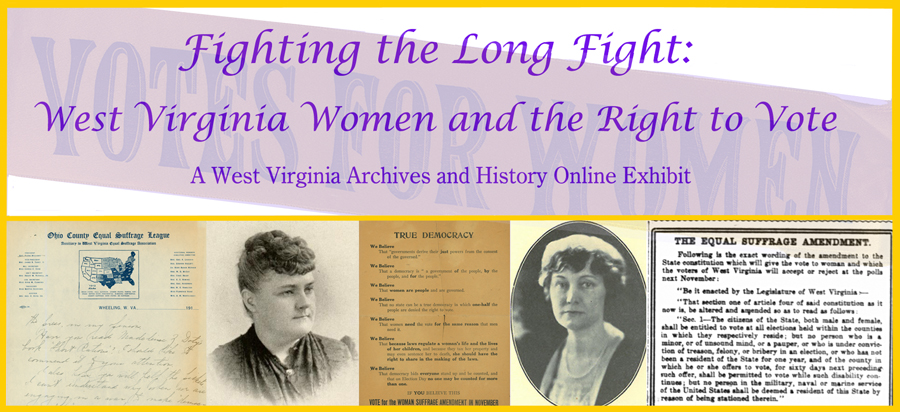
 February 13, 1908
President of Suffragist Association Makes Eloquent Plea for Suffrage ‘COUNTRY NOT REPUBLIC’ “Sum of Wisdom of Citizenship Needed for Good Government” At a large gathering in the hall of the house of delegates last evening, Dr. Anna H. Shaw of Philadelphia, the national president of the Suffragist Association, spoke eloquently in favor of woman’s suffrage. Miss Shaw is a delightful talker. Gifted with a musical voice, a whimsical smile, (that emphasizes her arguments forcibly) the orator’s trick of serious and humorous climatic periods, and startling autithises [sic], together with an intense and and [sic] almost fanatical belief in the justice of her cause, she, whether she convinces or not, at least compels the respect and close attention of her auditors. The crucial argument she advanced in favor of suffrage was embodied in her assertion that while this country is ostensibly a republic, it is not and never has been, for a republic is a country governed by the people, and not by a part of the people; that, therefore, a country governed by men alone, a country in the affairs of which women have no voice; limiting the power of voting, as it does, to the masculine citizens, and eliminating the feminine, is not a country governed by all its people, but by a part, and this part, as could easily gathered from Miss Shaw’s discourse, the part least worthy to govern,
She asserted that the good government of a country requires the sum of the wisdom of its citizens, and that it is an incontrovertible fact that the joint wisdom of the men and women of the country exceeds the wisdom of the men alone, that the help of the woman’s brain is needed to assure the best results in government. She asserted that women have advanced from the time when they had depended upon men for their wisdom; that women now think for themselves and that the first step that they have taken in advancement is to forget some of the so-called truths that they have learned from their grandmothers. Miss Shaw proclaimed as a fallacy the doctrine that women are more sentimental than men. She said that the average man’s sentimentality as compared to that of a woman is as a tallow dip compared to an arc light. She bemoaned that face, which she said is responsible for all of the opposition to woman’s suffrage, for, she has found that it is impossible to have a sensible argument on the subject with men, for they invariably, instead of advancing solid arguments against her claims, take refuge in sentiment, and answer her logical arguments with appeals to custom and to the lack of precedent. This conservatism she characterized as a combination of ignorance, prejudice and cowardice. Women should have the right to vote, because their influence would be good for the morality of the community, she said. That, with the power of the ballot in her hands she would rapidly bring about that happy day, when saloon and street corner caucus would be a thing of the past, and instead, man and wife by their own fireside would intimately discuss the things relating to the remedy of those social evils immediate to them, and thus make more wholesome the atmosphere in which they rear their children; consequently making their children better (for environment, says Miss Shaw, has a greater influence upon character than heredity) and thus giving to the country citizens of higred [sic] caliber who will make a better country.
Miss Shaw went on to say that the schools of this country were turning out almost twice as many girl graduates as boys, and that the girls win a greater percentage of the prizes, scholarships and fellowships. She asked if the elimination of this great body of educated citizens from the governing power of a country could work anything but evil to the country. In reply to the argument of those opposed to granting suffrage, who advanced the theory that woman should not vote, but should, by her influence, direct the vote of men, and should teach men how to vote, Miss Shaw declared that it is foolish to expect women, who are not supposed to know anything of politics, to teach men how to vote; that it was foolish for a political non-entity to hope to teach a politican [sic] entity anything. Miss Shaw closed with a prerotation [sic], eloquent and rhetorical, finished and climatic. The crowd was enthusiastic in its demonstration of appreciation of her eloquence.
During all of this speech, a prominent merchant of the city sat with his wife and daughter, in the midst of a crowd of ladies, with his hat on his head. A prominent member of the state senate announced that, in her opinion, this was a straw to show in which direction the wind blew, for he declared that when women vote there would be few hats tipped or doffed, that the gentleman who kept his on was trying to give evidence of his approval of making women the equal of men. Hon. J. R. Strickling, delegate from Tyler county, introduced the speakers. Previous to Dr. Shaw’s address, Dr. Harriet B. Jones, of Wheeling, made a short speech. She emphasized the growing note of influence in the voice of the women of the land, and claimed, as an evidence of this, that the question of prohibition now being agitated, had been largely brought into prominence by women. |